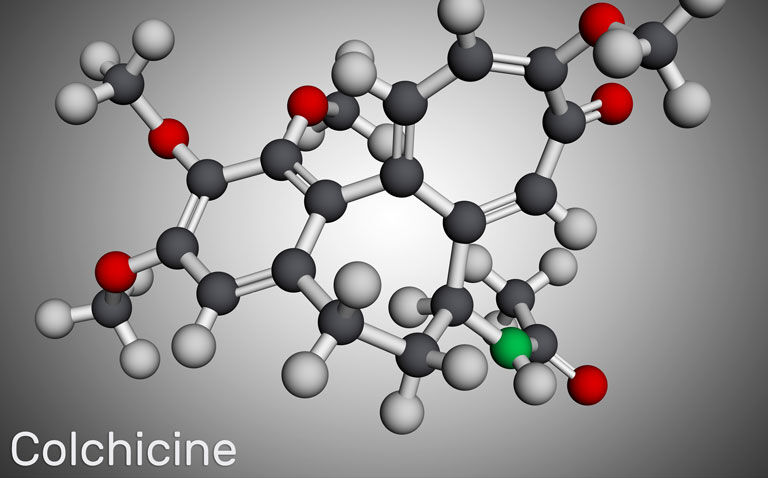Low dose colchicine before and following non-CABG cardiac surgery is associated with a reduction in biomarkers of myocardial cell injury
A study by Chinese researchers has shown that using colchicine for two days before and five days after, non-post-coronary artery bypass grafting (non-CABG) cardiac surgery, significantly lowers markers of myocardial injury and inflammation.
It has become recognised for many years that in cardiac surgery involving cardiopulmonary bypass, there is a systemic inflammatory response that leads to both organ injury and post-operative morbidity. While colchicine is often been used in the management of gout, the drug also has anti-inflammatory effects and can have a positive impact on several rheumatic diseases with a potential benefit in cardiac disease. Cardiac surgery is known to elevate markers of myocardial injury such as troponin levels and one study suggested that if post-operative values exceed ≥ 0.8 μg/L on the first post-operative day, a further 10% increase is significantly associated with all-cause, 12-month mortality and other adverse events. With some data showing that a perioperative course of colchicine, in patients undergoing standard coronary artery bypass grafting, reduced post-operative surgery-related myocardial damage, in the current study, the Chinese team wondered if this myocardial protective effect would extend to non-CAGB cardiac procedures.
Turning to patients undergoing other types of cardiac surgery such as mitral and aortic valve replacement, atrial septal defect repair and atrial myxoma resection, the researchers randomised patients, 1:1 to receive colchicine 0.5mg daily or placebo for three days before and five days after their cardiac surgery. The primary outcome was the level of cardiac troponin T (cTnT) 48 hours after surgery whereas secondary outcomes included biomarkers of myocardial injury including creatine kinase-MB (CK-MB) and procalcitonin (PCT).
Colchicine and myocardial injury
A total of 121 patients with a mean age of 59.4 years (57.8% male) were included and of whom, 59 were given colchicine.
At the 48-hour post-operative timepoint, patients assigned to colchicine had significantly lower cTnT (p < 0.001), CK-MB (p = 0.01) and PCT (p < 0.01) levels compared to placebo. In fact, cTnT levels remained significantly lower in those assigned to colchicine, 5 days after surgery (0.14 vs 0.23 μg/L, p = 0.001).
This findings led the authors to concluded that a short perioperative course of colchicine lowered post-operative biomarkers of myocardial injury and inflammation.
Citation
Pan T et al. The low-dose colchicine in patients after non-CABG cardiac surgery: a randomized controlled trial. Crit Care 2023










